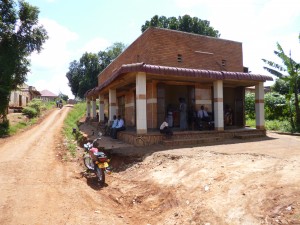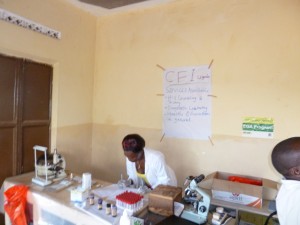CFI combating superstition in Uganda
Fifty or so miles out of Kampala is a small town called Wobulenzi, and here CFI–Uganda runs a clinic devoted to testing the local population for HIV/AIDS and educating them how the disease is contracted. The education program is vital because, as in much of Africa, superstition and misinformation are rife. So much of what is not understood is attributed to witchcraft and, not infrequently, whoever is identified as the witch ends up dying a horrible death. The churches and the mosques do little or nothing to prevent this superstition, and in many cases are the chief propagators. So, against huge odds, CFI–Uganda is fighting these debilitating superstitions.
CFI–Uganda is also helping an organization called HALEA, or Humanist Association for Leadership, Equity and Accountability. HALEA works in the Kampala slums providing basic information to the people there. It might be about successful job-hunting, or about sexual hygiene and contraception. As elsewhere, there is a strong need to educate people against the prevalent superstitions. Predatory churches seek members by spreading fear and misinformation about HIV/AIDS, contraception, vaccination, education and many other things. The young slum-dwellers, almost all unemployed, are also susceptible to criminal activities, so HALEA organises recreational activities to keep them busy and off the streets.
HALEA works in the Kampala slums providing basic information to the people there. It might be about successful job-hunting, or about sexual hygiene and contraception. As elsewhere, there is a strong need to educate people against the prevalent superstitions. Predatory churches seek members by spreading fear and misinformation about HIV/AIDS, contraception, vaccination, education and many other things. The young slum-dwellers, almost all unemployed, are also susceptible to criminal activities, so HALEA organises recreational activities to keep them busy and off the streets.
CFI recently stepped up its funding to the clinic at Wobulenzi, and has donated money for HALEA to buy a motorbike, the cheapest and quickest means of transport around Kampala. The various programs it runs are scattered around the sprawling city but now contact between them is a little bit easier. The CFI’s work in Uganda is the clearest example I know of skepticism and humanism working seamlessly together.
Editor’s note: If you want to donate to support this work, donate to CFI and earmark it for the International Program.
About the Author
Bill Cooke is the International Director of the CFI’s Transnational Program.


